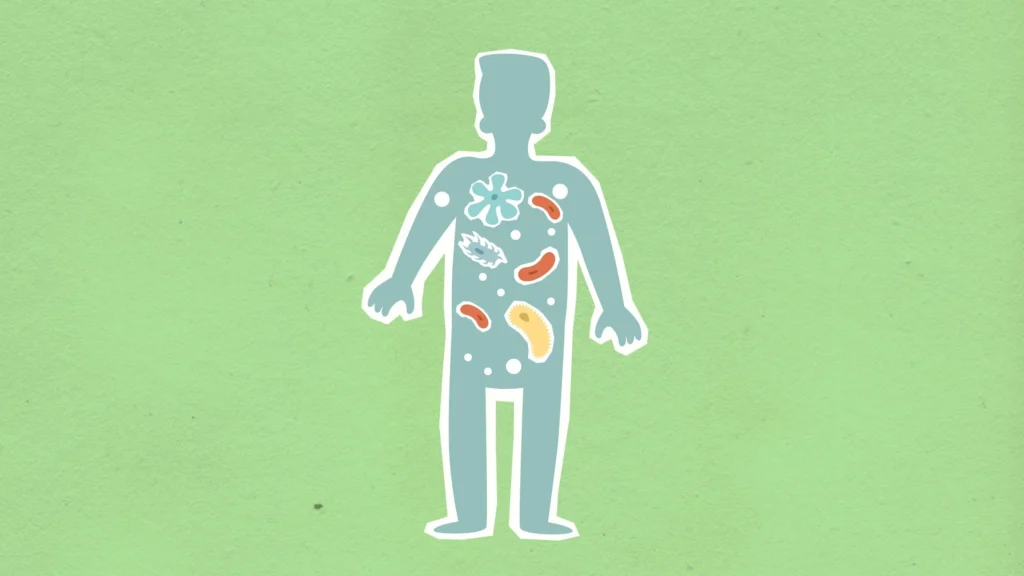News Team member Stephanie Oehler describes how the online "trad-wife" aesthetic fuels the flames of the anti-vaccination movement during the second-largest measles outbreak of the 21st century.
Supplemental Nutrition Promotes Healthy Gut Microbiome and Relief for Cystic Fibrosis Symptoms
By Alexa Morales
Cystic fibrosis is an incurable genetic disorder inherited when a person inherits a mutation from both parents. The mutation arises when there is a change in the DNA sequence of a regulator gene, the basic unit of hereditary information containing the genetic instructions for its corresponding protein.
People who suffer from cystic fibrosis struggle with proper functioning of their lungs and respiratory system due to a build-up of sticky mucus in their airway and digestive tract. It can also affect the pancreas and digestive system, and treatment requires a complicated drug regimen that further interferes with a patient’s nutrition status, vitamin intake, and gut microbiome.
For years, researchers have investigated different interventions that could help improve these additional challenges related to nutrition. And now, investigators might have better insights as to how this the microbiomes of cystic fibrosis patients can be better supported.
In a study published in the Journal of Clinical and Translational Endocrinology, researchers found that the combination of high doses of vitamin D and inulin, or dietary fiber, had the most impact on the microbiome of cystic fibrosis patients. The study was performed by Dr. Vin Tangpricha, MD PhD, and a team of researchers from Emory University, Georgia State University, Mahidol University, and Université Paris Cité.
The combination of vitamin D and inulin targeted two main nutrition issues associated with cystic fibrosis. One is a vitamin D deficiency commonly found in cystic fibrosis patients. “[In cystic fibrosis] the pancreas is destroyed, and is not able to release hormones, like insulin,” says Tangpricha, one of the main researchers for this study and a professor of medicine at Emory University. “But also, it is not able to release the digestive enzymes that are important for absorbing fat-soluble vitamins like vitamin D.”

The second issue is the various gastrointestinal problems, such as altered bacteria. This occurs as a result of chronic inflammation, which is caused by the intense antibiotic regimen that cystic fibrosis patients need to follow.
The idea to combine these two nutrition elements arose from a previous study by Tangpricha and a team of researchers who found that vitamin D could positively alter the gut microbiome in cystic fibrosis patients. According to Tangpricha, vitamin D does not directly act on the bacteria, but rather, it acts on the gut wall where it might promote a healthier environment for bacteria to develop. Careful attention to a cystic fibrosis patient’s gut microbiome is crucial given that a healthy gut microbiome can help patients with food digestion and thus improve their nutrition status. The addition of inulin was the missing piece of the puzzle that would have promising results when combined with vitamin D in this study.
The main goal of this pilot study was to observe whether the methodology would be feasible if scaled up. It consisted of 40 participants, predominantly Caucasian, randomized into four groups receiving just vitamin D, just the prebiotic inulin, the combination of both, or no supplement at all. Through a double-blind setup, neither the researchers nor the participants knew who received which treatment.
The researchers found that by combining high doses of vitamin D with inulin, a more diverse microbiome developed in the intestinal tract and airway of the participants in comparison to vitamin D alone, inulin alone, or no treatment. Participants who received both treatments also reported less abdominal pain in comparison to participants in the other groups. All of the participants also reported moderate toleration of the treatments over the 12-week period of the study.
“The benefits that they found were amazing,” says Dan Benardot, PhD, RD, FACSM, an expert in sports nutrition, author, and a nutrition professor at Emory University. Benardot highlighted that the combination of these two supplements was incredible for its ability to improve so many aspects of a cystic fibrosis patient’s health through the promotion of a healthy microbiome. “The idea that vitamin D could help maintain gut microbiota balance in health was brilliant,” says Benardot.
One of the health risks for this study was a possible excess of vitamin D intake. Therefore, a key consideration in this study was to give the appropriate dosage of vitamin D to the participants based on previous research. The investigators had to make sure they were not putting them at risk for excess vitamin D intake, which can cause a buildup of calcium in the blood and result in symptoms like nausea and vomiting. Through careful monitoring, such as phone calls and participant questionnaires, they made sure to detect any adverse effects to the treatments.
After the findings from this study showing the positive role of vitamin D and inulin on the intestinal and airway microbiome of cystic fibrosis patients, researchers could continue to investigate their impact at a larger scale with participants from diverse ethnic backgrounds. According to Tangpricha, now that we know that intestinal and airway bacteria change with the combination of these two supplements, it would also be important to assess why that change occurs.
Other dietary-related assessments could also be investigated in the future. According to Benardot, in addition to providing vitamin D and inulin, it would also be useful to analyze the participants’ overall dietary intake, as well as eating patterns and energy balance.
Research like this helps to remind patients that there are many pathways to promoting healthier lifestyles that are not exclusive to people with certain disorders, like cystic fibrosis. It also reminds patients that good things happen when they maintain a healthy microbiome to help their organisms work in sync, thus promoting homeostasis; the perfect healthy balance in the body.
